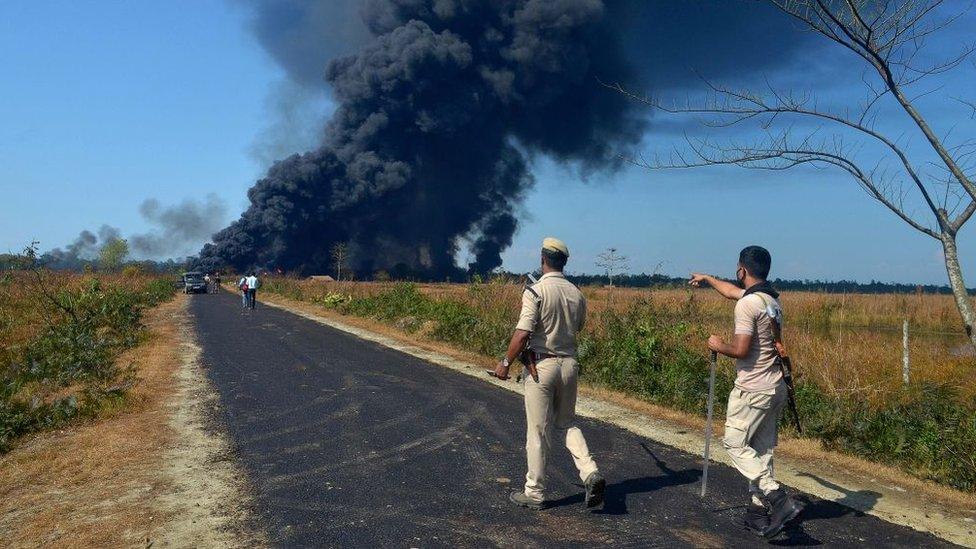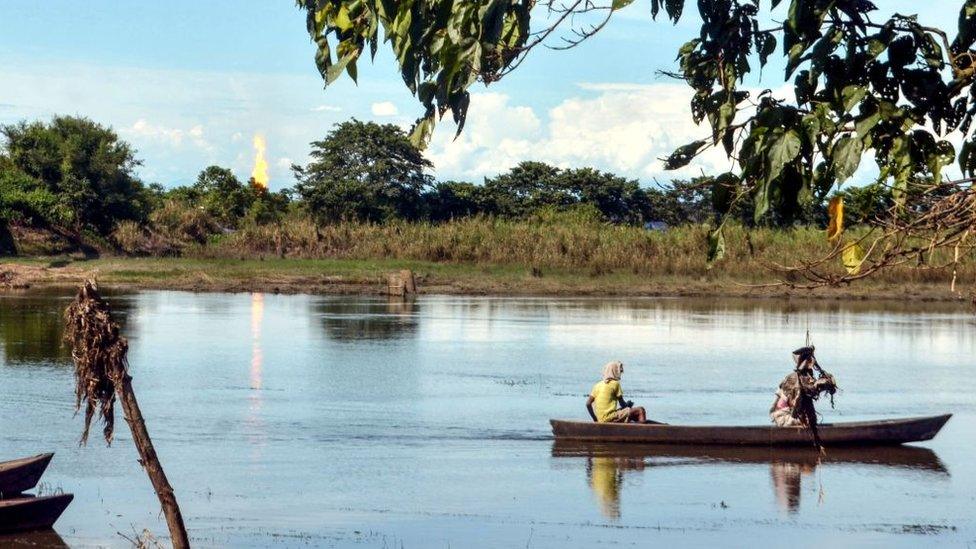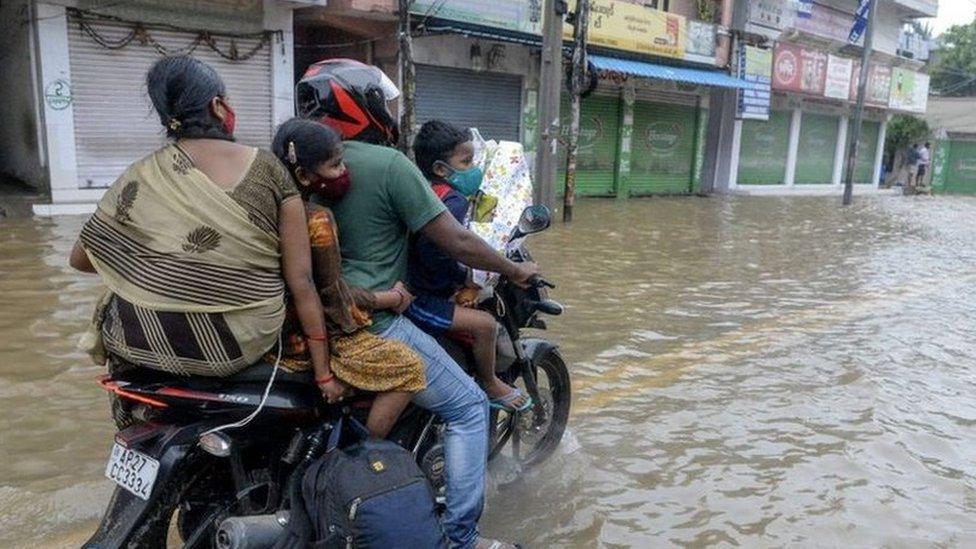Assam fire: India's longest burning gas blaze is destroying lives
- Published

A fire has blazed in a gas well in Assam state for nearly five months
Labanya Saikia, a single mother of three in India's north-eastern state of Assam, lost her house to a raging fire that started from a nearby gas well of the state-run Oil India Limited (OIL) in June.
Also lost in the fire was her tiny shop in Tinsukia district that enabled her to raise the three children. She is confident that the house and the shop could be rebuilt. But Ms Saikia says she is heartbroken at the loss of her late husband's photographs that were gutted in the fire.
"My children will have to grow up without a photograph of their father to look at. After a while, they will probably no longer be able to associate a face to their father's name," Ms Saikia said.
The blaze that started on 9 June, following a gas blowout in Baghjan area, has raged for about 150 days now, making it the longest such fire in India. Three people have died in trying to contain the fire, which initially forced 3,000 people in neighbouring villages to leave their homes and take shelter in makeshift camps.
While most of the people have since returned to their homes, scores of families who were living closer to the site of the fire are still in temporary shelters.

The fire has threatened the local environment and ecology
"The heat, smoke and the gushing sound have made the area a hazardous place. Many locals are complaining of health complications such as anxiety, migraine, loss of appetite and burning eyes," says local journalist Nawantik Urang.
The OIL said that they had provided 2.5m rupees ($33,858; £26,124) as immediate compensation to each of 12 families that completely lost their homes, and they continue to give 50,000 rupees ($674) per month as livelihood support to each family which is now forced to stay away from their homes.

A similar fire in an oil well - operated by the state-run Oil and Natural Gas Corporation Limited (ONGC) - in Assam's Sivasagar district in 1967 was contained after about 90 days of efforts
A blowout and fire in another ONGC facility in Pasarlapudi of Andhra Pradesh state took 65 days to control
A fire at a well of the OIL in Assam's Dikom area in 2005 took 20 days to contain

Some of the locals have been protesting, demanding speedy compensation and a quick resolution of the crisis.
"We have only received funds from the company for our immediate livelihood support. We are yet to receive any compensation for the house and crops damaged in the fire," said 40-year-old farmer Dandeshwar Borah, who has now been living in a makeshift hut about 1.5km away from the site of the fire.
Officials of the state-run company say they are close to containing the flames, but there are complaints about their initial handling of the fire.
Bijit Bordoloi, a retired manager with a state-run electricity distribution firm, is also unhappy with the OIL's handling of the situation. His 25-year-old son Arnab, an engineer with the OIL, was one of the three people who died in efforts to contain the fire.

Locals affected by the fire are demanding speedy compensation
"We have several questions on the circumstances that led to the death of my son. The OIL is yet to offer any clarity on those. To start with, Arnab was relatively new in the organisation and did not have the required qualification or experience to operate in that kind of a crisis," Mr Bordoloi said.
The OIL, however, says that blowouts and fire are not uncommon in the oil and gas industry anywhere in the world.
But the firm admits that the fire has affected the environment, while asserting that the impact will be short lived.
"Because of the nature of the gas and the condensate, they easily evaporate and are washed away by rains. These elements do not have long-term impact either on the air or the soil," said Tridiv Hazarika, a senior public relations manager of the OIL.
However, an Assam government expert involved in the process of assessing the environmental impact told the BBC on the condition of anonymity that the incident posed a threat to the local ecology.
"The full assessment of the environmental impact is a work in progress so far. But the incident has caused damage that would require years to repair or heal. There are several crucial biodiversity zones, which are at distances of about three kilometres from the site of the fire," said the expert.
Using a heavy oil well intervention process called snubbing, the oil company hopes to extinguish the fire by the middle of November - although a number of such targets were missed in the past months.
"This is something that we did not have to use in the past and we are hopeful that snubbing will do the magic for us" said Mr Hazarika.
- Published28 October 2020
- Published14 October 2020
